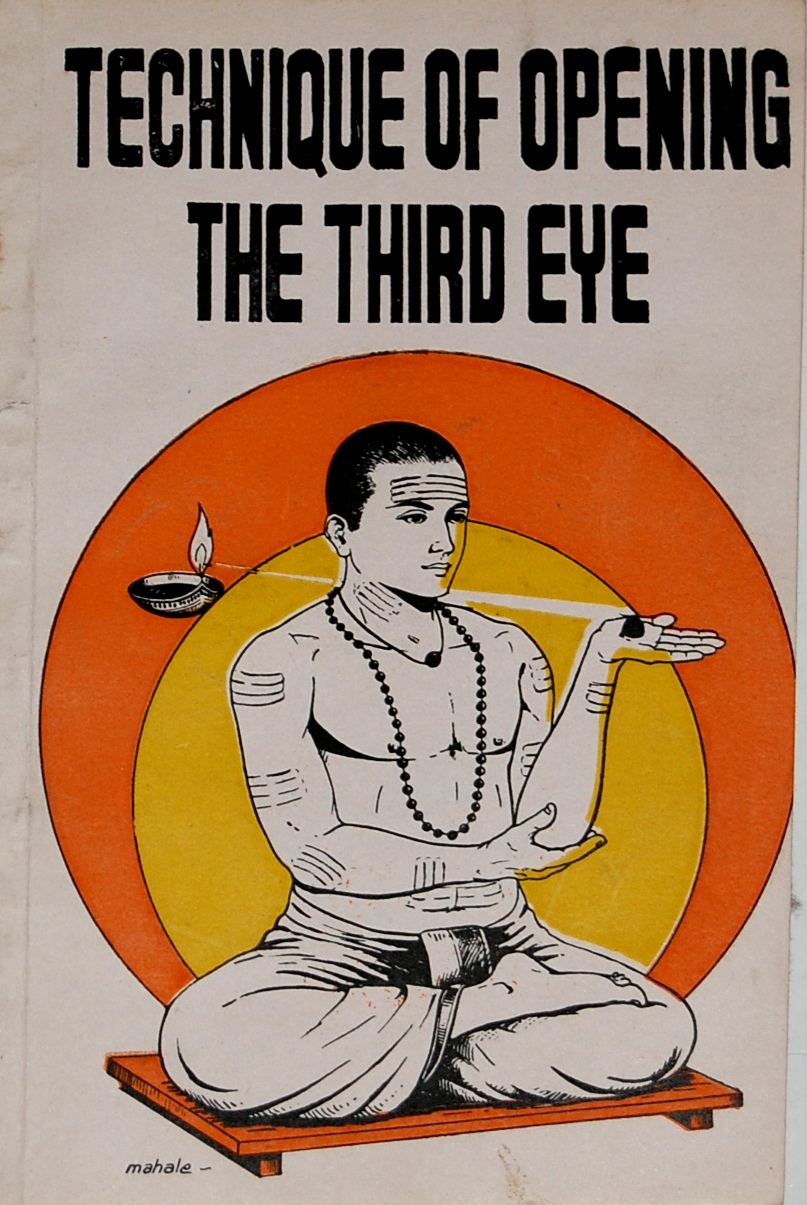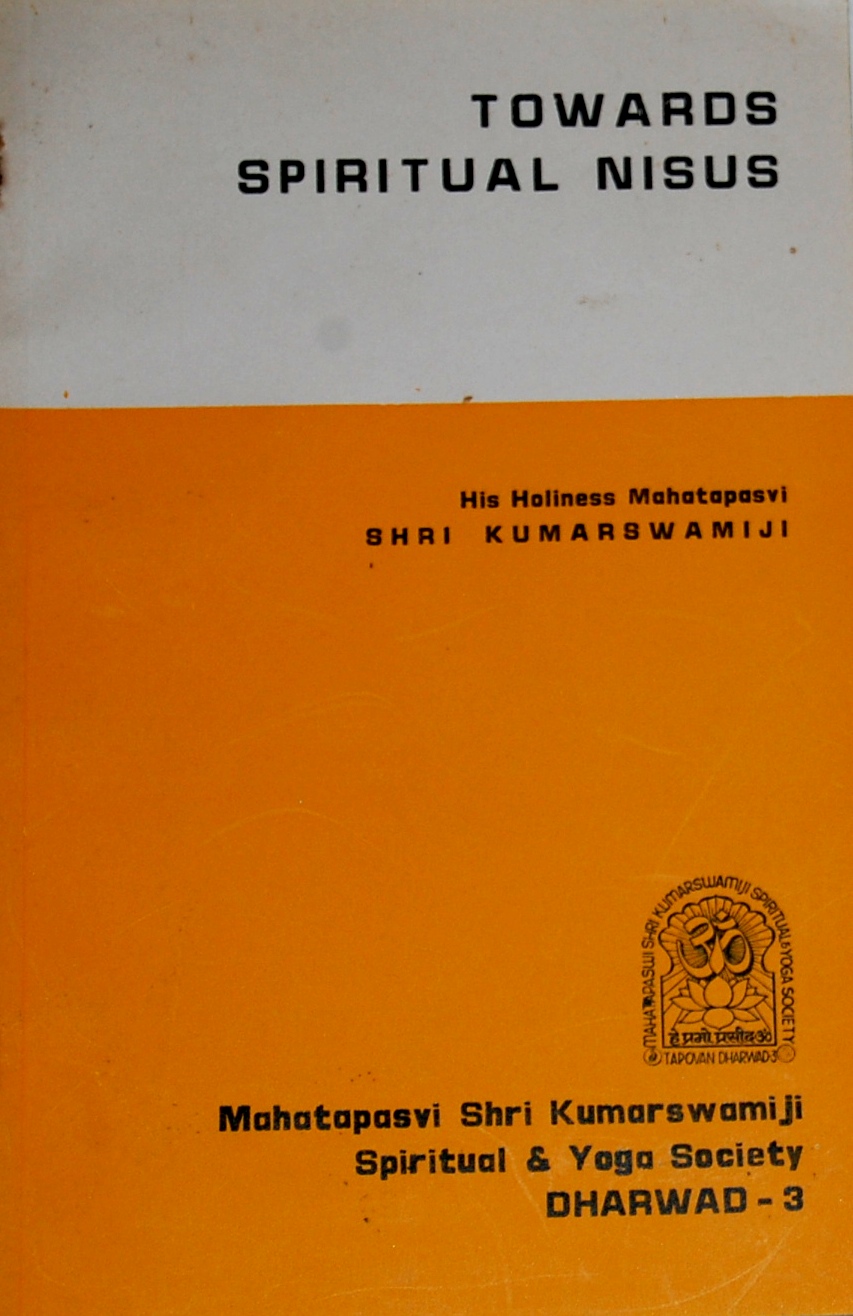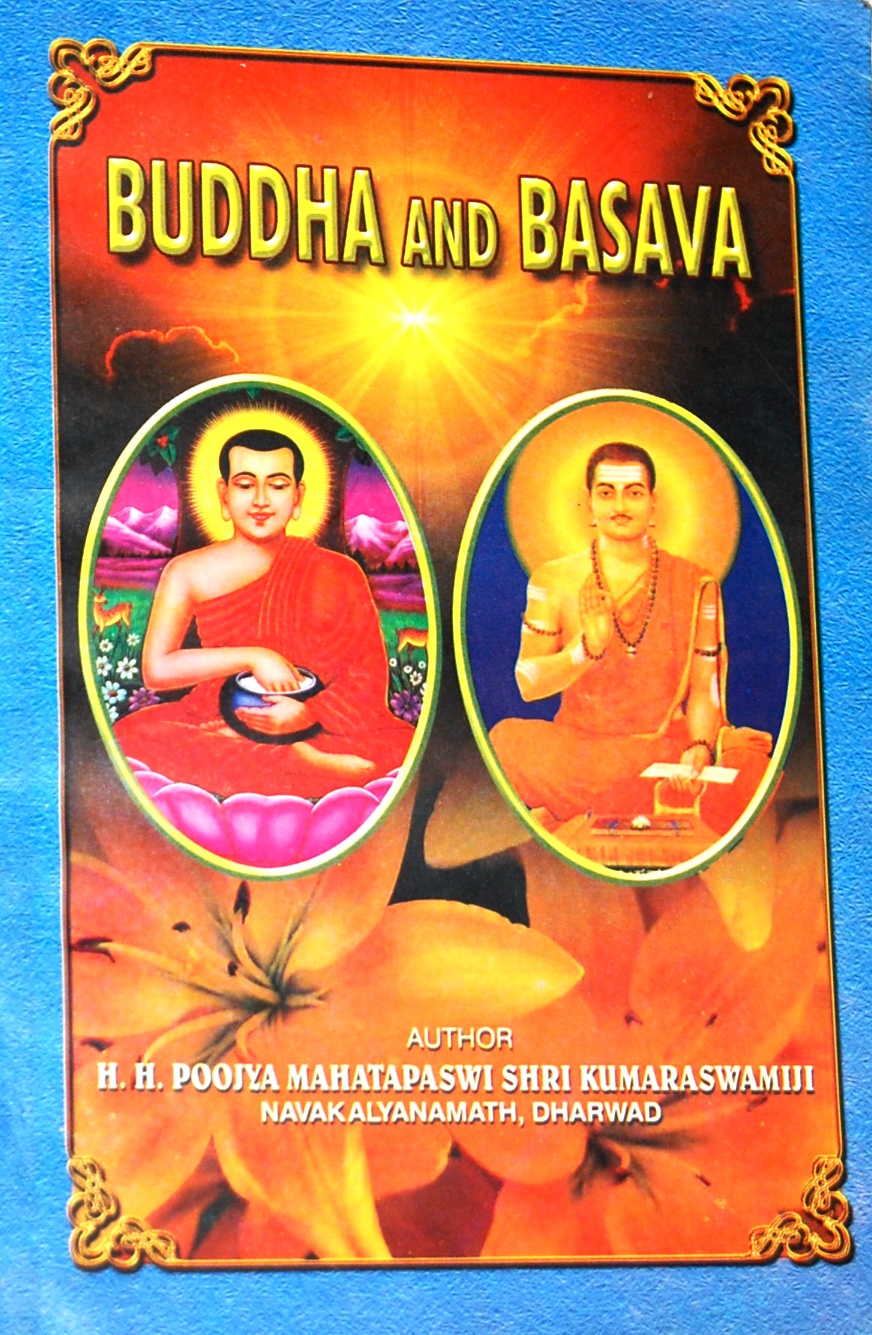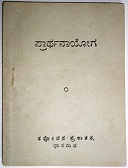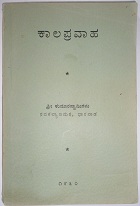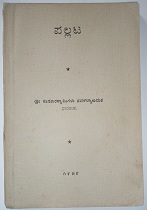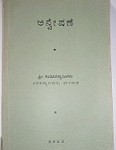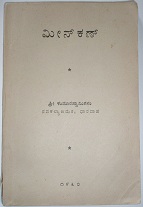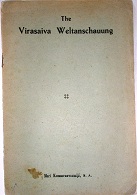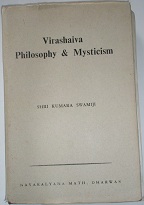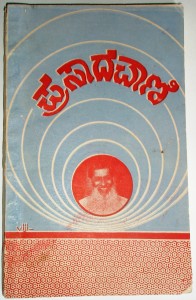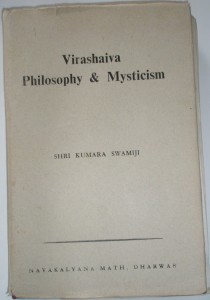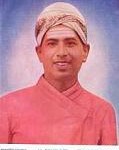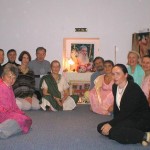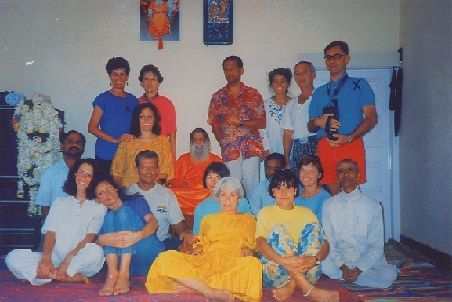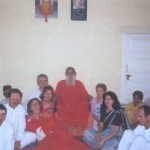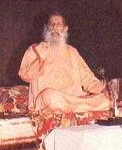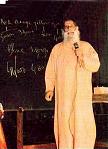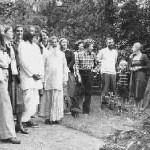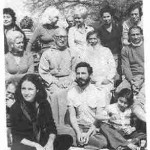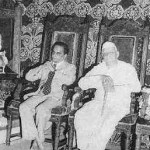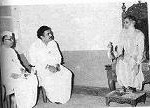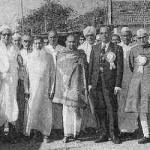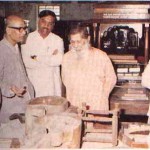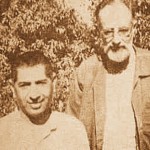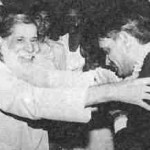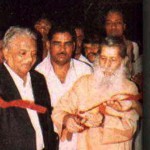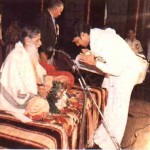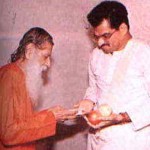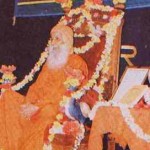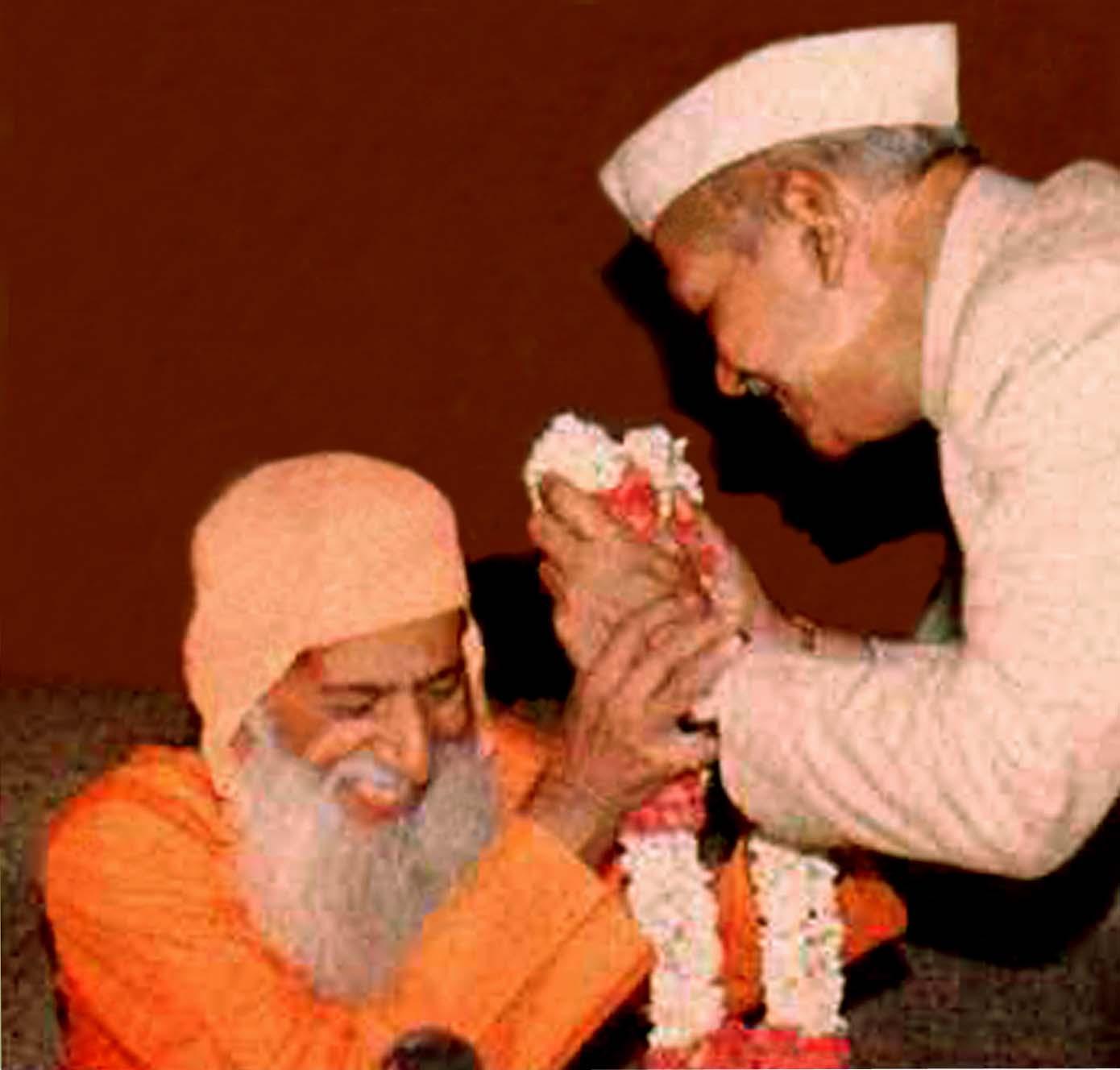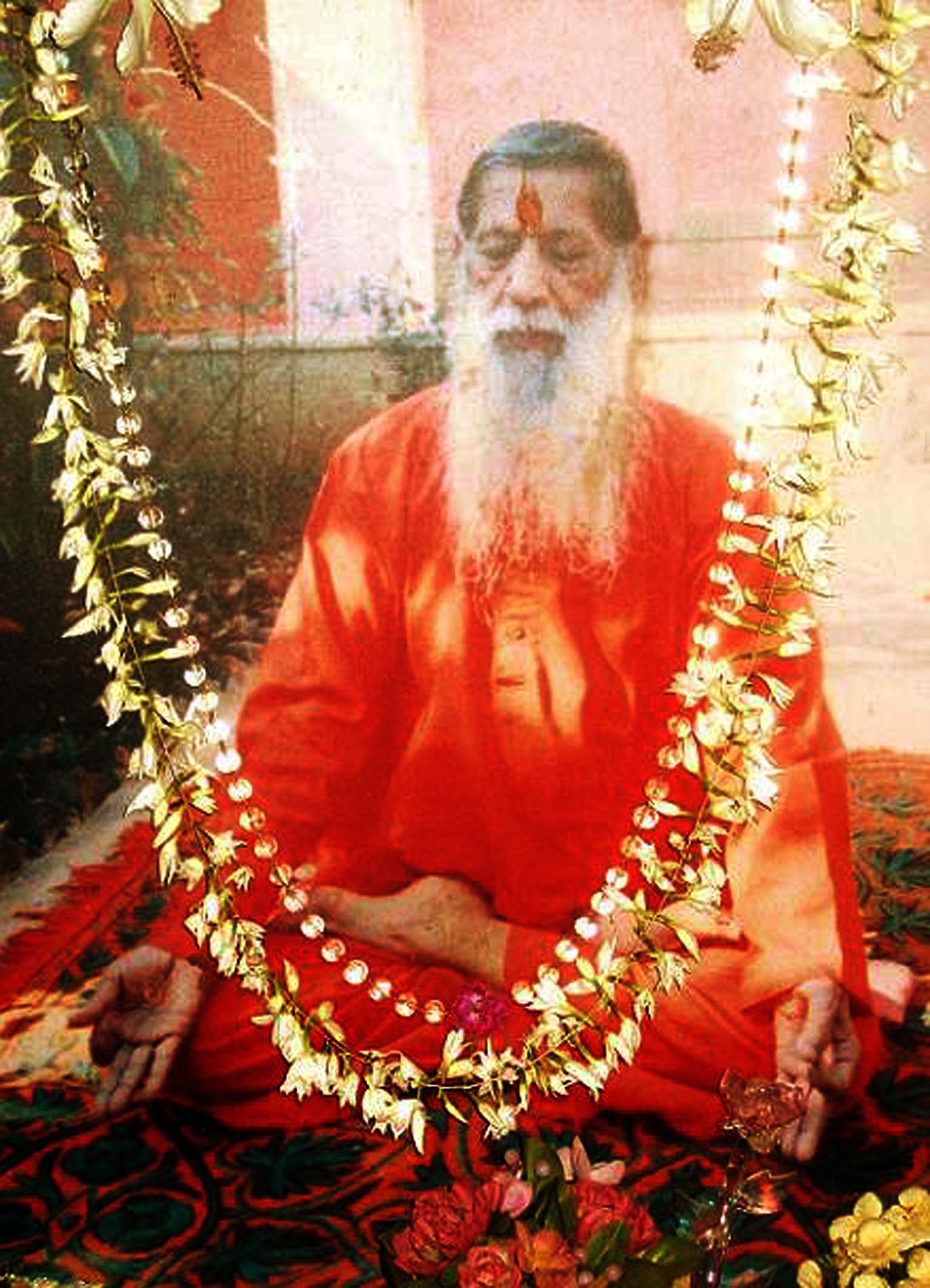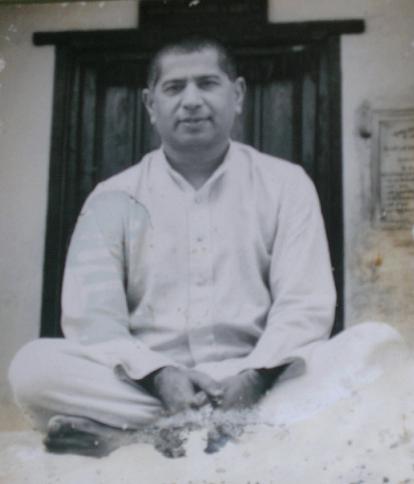The Supreme Being is the One, the all-perfect One; the One of numberless glories and graces, and that he is the one only object of our worship and adoration. Probing into the depths of his own instinctive apprehension of him, man has sought to describe that as Truth. God is the essence, as wisdom he is the purpose, as infinity he is the abode, as joy he is the riches, as immortality he is the glory, as peace he is the stability, as goodness he is the fulfillment, as unity he is the perfection of our lives. And thus emerging from him, abiding in him, growing in him, rejoicing in him and retreating back unto him our life becomes the chosen vessel of his love and the favoured shrine of his holiness. He is the basis and foundation, the true substance, the enduring essence of the whole round of existence. But for him, void of him, abstracted from him what we are we all, what are these radiant orbs, what is the solid world, and what is this bracing atmosphere? Mere shows, fleeting shadows, unsubstantial dreams, vanishing mists! This constitutes, according to the mystic the complete process of the beatification of man, the glorification of the Supreme Being.
Science, Philosophy and Religion are all alike in this that their aim is to understand the world, but the purpose of understanding is different in each of them. In science the purpose is frequently pure theory of knowledge for its own sake, but more commonly it is knowedge subordinated to practical ends. In philosophy the purpose is the love of wisdom and the resulting intellectual clarity and adjustment. In religion the purpose is peace, harmony and salvation. It is therefore said that the function of religion is to make man feel at home in the world by making it friendly to him. But philosophy and science also makes us feel at home in the world, by widening our knowledge and giving us the keen joy of comprehension, while religion does this in a more direct and human manner by introducing a personal relation between man and the powers of the universe. Religion is more emotional, personal and practical in a sense, different from the practicality of applied science. Religion is therefore considered to be a feeling of dependence upon the unseen power which controls our destiny, accompanied by a desire to come into friendly relations with it. Religion is the love of God. It is the communion with the Over-soul. It is loyalty to the Highest within us. It is looking up high to ultimate values and being drawn to them by sympathy and recognition.
Hence the religious attitude is one of loyalty, devotion , reverence and humility to the Godhead. But this religious attitude often needs the scrutiny of philosophy. If religion is instinctive and intuitive, philosophy is intellectual and critical. Religious instincts and intuitions frequently need to be corrected and clarified by philosophic reflection. If religion is the cultivation of the spiritual values which are ever present but sometimes dormant in the human soul, it belongs to philosophy to scrutinize these values, determining their source and their objective equivalents. If religion is the response of the soul to the divine forces of the universe, philosophy must tell us about the existence of these forces. If religion believes that there lies behind things a power or essence which is closely related to our nature and that it can be called personal, then philosophy must determine whether there is in science anything to prevent our believing in such a personal power. It will be noticed that the relation between philosophy and religion is more intimate.
We in this age mouth slogans like social progress, social adjustment and social relations. But we forget, however, that social relations arise from the action and reaction between the fundamental aspiration in man and his sociability. If consciously or unconsciously we interpose haitus between man�s aspiration and his sociability, we arrive not at a social science but at unscientific dogmatism. We have not a true but truncated philosophy of life. If these are viewed separately we have only a truncated philosophy, not social sciences but unscientific dogmatism. This aspiration when it becomes articulate may express itself through forms of beauty and literary creation. When it is intensified, the longing is satisfied by a contact with spirit. An impulse to contact the spirit is felt when one lives in incessant desire to enter into something wider and higher than the normal self. And this impulse to contact the spirit in its wider, higher and deeper provinces is Mysticism. And in progress towards a spiritual goal the time comes to every one when the aspiration grows in intensity as to release creative power. Then follows the pure joy of self-fulfilment. The faith, the effort and goal which go to make up the dynamic progress towards self-fulfilment constitute the mystic way.
Man is never satisfied with what he is; he wants to be more of himself than he is. Material comforts, however ample, can never satisfy his craving for the beyond. On the contrary, they bring only satiety and induce a stronger nostalgia for the life of the spirit. Mysticism gives man a vision of this spirit which stands beyond and behind the passing the flux of immediate things, the spirit which is a remote possibility and yet the greatest of the present facts, the spirit that gives meaning to the transient and yet eludes apprehension, the spirit whose possesion is the final good and yet is beyond all reach, the spirit which is the ultimate ideal and yet the greatest quest. The knowledgeof this spirit is indeed the mystic knowledge.
Knowledge is of three kinds – the objective, the subjective and the spiritual, which are respectively styled Adi-bhuta Jnana, Adhyatma Jnana and Adhidaiva Jnana. All scientific knowledge of the objective world is subsumed under Adi-bhuta. All knowledge of the self concerned with mental, moral and emotional states is classified uner Adhyatma. All knowledge of the spirit or Over-soul is subsumed under Adhidaiva. The Adhidaiva or the spiritual knowledge includes in its sweep the knowledge of the universal as also the particular, the cosmic as also the individual. It is the spiritual knwoledge that inter-pentrates the subjective and objective knowledge. It is this spiritual knowledge that forms the nexus between idealism and realism. Absolute idealism robs us of all the universe which is of much empirical value, but in this spiritualism it is conserved for us. Spiritual knowledge or the knowledge of God is of ultimate worth to the mystic as compared with the knowledge of the self and the non-self. These other knowledges have to him relative values only in that they are useful as contrasts. As against the back-ground of the subjective and objective knowledge, his spiritual knowledge stands out as a clear relief in colours, out-lines, lineaments and artistic perfection. Why this knowledge of God is of ultimate worth to the mystic? Because it gives man final beatitude or bliss which transcends all dualities. This knowledge of God gives the ultimate bliss; it is that aspect in which the particular is resolved into the universal, the individual into the cosmic, the solipsistic, into the panipsistic, the selfish into the altruistic. Thus the supreme moral value of goodness, holiness and blessedness is reached and realized by the mystic by the corresponding resolution.
There is nothing mysterious about Mysticism. Mysticism is the immediate feeling of the presence of God. It is an endeavour to fix the immediateness of life in God as abstracted from all intervening helps and channels whatsoever. The thought that is intensely present with the mystic is that of a supreme all-pervading and indwelling Power in which all things are one and hence that power or God cease to be an object and becomes an experience. The mystic is a mystic by virtue of his believing in God. If he is asked why he believes in God, he answers that it is because he believes in himself; he feels it impossible to believe in his own existence without the belief in the existence of him who lives as a personal, all-seeing, all-judging Being in his consciousness. Mysticism is therefore an endeavour to arrive at some definite concept of a dynamic Power impulsing in the universe, the Neutrum behind mind and matter, the Tertium Quid of the triad or the triple principle. There is in the individual an irrational surd or mystery which science cannot explain. If science tries to explain it them surd becomes absurd. Mysticism begins with this individual surd and soars up to the universal surd so that it may not become absurd. The principle of mysticism is, in its core and essence, bliss and beatific attitude. Its ultimateness is not conditioned by time and space but contingent only on the ripeness of the experience or the mystic. The value of mysticism then lies in giving to mankind the benefit of direct and immediate individual experience of the Divine as blissful and beautiful, and in affording the optimistic basis and the end of the universe. Its verdict is based on an intimate and immediate living intercourse with the Divine, but not on metaphysics mediately constructed by virtue of discursive intellect and deductive inference.
But the pure intellectual quest of Reality leads us to various types of idealism such as subjective idealism of Descartes, objective idealism of Hume, transcendental idealism of Kant, absolute idealism of Hegel and immanental idealism of Croce and Gentile. The idealist�s world is constructed from an observation of the process of thought. In idealism we have perhaps the most sublime Theory of Being which has ever been constructed by the human. But it failed as a practical guide because of the distinction between thought and life, between spirit and matter. There is another philosophic scheme namely Vitalism, the pioneers of which are Driesch, Bergson, Eucken, Neitzsche and Shaw, though its origin may be found in Heraclitus. They all admitted the vital principle as the essence of reality. The principle of a free, spontaneous and creative life is held to be the essence of reality. Not law but spontaneity, not human logic but actual living experience is the criterion of Trust. But the great defect of vitalism considered as a system is that it only answers half the question, the half which absolute idealism disdained to answer. But the adequate truth must be great enough to embrace this sublime paradox – eternity and time, Reality and appearance, one and the many, to take up these apparent negations into a higher synthesis. Neither the utter transcendence of extreme idealism nor the utter immanence of the Vitalists will do. Both these taken alone are declared by the Mystics to be incomplete. Being and becoming, one and the many are inseparably wedded to each other; to dissociate them is to invite a bifercation between spirit and sense, between life and logic which practical idealism does not allow. For mystics are the practical idealists par excellence.
Practical idealism does not exclude from its scope the concept of beauty. To the mystic God is not only Shivam but also Sundaram, not only the Good but also the Beautiful. The appreciation of beauty is due to an inward intuition, and we become aware of it as it rises up into the mind, and by the attempt of the mind to express it in some way. Beauty is a part of the scheme, otherwise man would not have been able to realize it. The philosopher defines the Beautiful as that which excites in us an emotion that is known as the aesthetic emotion. This emotion is not like any other feeling; it is different from the sensual feelings, although it may awaken thrills of joy which can be detected in their bodily reactions. The aesthetic emotions is a stirring of the divine. Spirit within us and as such is a revelation of God who is all beauty and all love. We do experience a thrill of joy when we are touched by the beauty of nature. For the mystic nature itself is a divine art and God behind nature is the divine Artist. The mystics feel around them the presence of an unseen being. They declare that through the medium of nature, they come into an intimate fellowship with this Being, and from that fellowship and sense of harmony they are enabled, in their upward struggle, to reach towards the integrality of the divine Being. Some carry their thought further and describe this fellowship as an immediate awareness of God. They say that under the stimulus of beauty they have a vision of God, more vivid than can be obtained through the other media of man�s contact with the Divine.
The story of nature is one long evolution and gradual unfolding of the essential, inherent divine Spirit. The slow experimental method of nature is necessary, seeing that goodness and love are the aim, and the goodness of God can only have such an aim. God�s love has been the cause of and the power within the age-long drama of the world�s becoming, and we cannot expect that His providence would work across the scheme, defeating the object of His creative activity. in demanding that God should, as a special favour, alter the regular working of the laws of the cosmos, we are asking Him to contradict His own nature. But we are not asking Him to contradict His nature or the scheme of man�s freedom when we pray for His Spirit to enter and fill our lives with conquering power. “If God be indeed the end of all existence, He must need fill all things with His being. If God is love, His arms are round the entire universe, and there is no creature anywhere un-loved by Him.” To find beauty in nature serves the mystic to strengthen his belief in the beauty of God, and this belief in the beauty of God will surely help him to hold fast to the faith that finds goodness in the same scheme.
The ordinary man is the meeting place between two worlds – the sense world and the spirit world. Likewise, the mystic, standing head and shoulders high above the ordinary man is again the meeting place between two orders – the transcendental and the immanental. On the one hand, he knows and rests in the world of Being, the sea pacific indubitably present to him in his ecstacies, attaineds by him in union of love. On the other hand, he knows and works in that stormy sea, the vital world of becoming, which is the expression of its will. To be a mystic is simply to participate here and now in that transcendental and immanental order, in that eternal and real life in the fullest, deepest sense which is possible to man. It is to share as a free and conscious agent in the joyous travail of the universe, its mighty onward sweep through pain and glory towards its home in Reality. This gift of agency or sonship, this power of free co-operation in the world-process is man�s greatest honour. The ordered sequence of the states, the organic development whereby his consciousness is detached from the illusions of desires and rises to the illumination of joy, point unmistakably to this great quest. Only by this deliberate fostering of his deeper self, only by the transmutation of the lower nature into the higher can he reach the conscious ascent towards the Absolute.
Mysticism, being a science, has its roots in metaphysics and the basic metaphysical ideas such as God, soul and immortality are inevitable premises for a mystic science. Then what is God? Various arguments have been advanced to define God such as the ontological, cosmological, teleological, moral and historical. Leaving aside these intellectual quibbles let us define God as an idea, which connotes the highest perfection, whether this perfection or ideal be aimed at from the side of science or philosophy or religion. God is Satyam, he is the Truth. He is the summation of all existence or essence which underlies all processes of thought and forms of phenomenon and noumenon. The truth implies metaphysical idea of God. God is Shivam, Good; He is the summation of all auspicious attirbutes, such as blessedness, subsumable under goodness, which is the moral idea of God. God is Sundaram, Beauty. He is the summation of all emotional equipments, aesthetic attributes subsumable under beauty, which is the artistic or aesthetic idea of God. He is Satyam, Ritam, Brihat – the Truth, the Law, the Vast. Otherwise expressed God is Sachhindananda. There are grades of beauty – physical, vital, intellectual and spiritual; but it is in the spiritual domain that bliss and beauty are identical. And it may be said that the mystic has mostly to do with this last aspect of the Divinity, namely Ananda which is bliss. The true delight which bridges the gulf between the highest heights of spirit and the lowest abyssess of matter.
The ultimate value or the reality of the cosmos is termed Brahman in Indian philosophy. The word Brahman comes from the root Brih to grow; but it is not growing in the sense that a seed germinates and grows, but it gets enriched by the conservation and cummulation of values. It is ever growing, ever expanding. It becomes ever new and new. It is new as never before. “Even the same in principle, but never the same in concrete result.” Novelty is the law of infinity. Brahman is not only Ananda, infinite but Amrita, immortal. Since novelty is the law of the infinite there does not appear to be any definite limits to the possibility of acquiring knowledge and hence of progress. The final wisdom is not fully attainable by man. If it could be attained we should be at the end of things and we should have to begin afresh. The cosmic dynamism ever produces novel situations everywhere; for the eternal rhythmic march of the cosmic evolution is ever new and renewing. “In the cosmos there is that which scatters and yet increases, the seeming waste is for the more perfect growth. The present visible system of things is but temporary; it is spending its energies for the production of another more advanced order of things; and the sun beams which seem lost in the space and other forces which appear now to run to waste may have functions to fulfil, of which we know nothing at the present state of our knowledge. They are doubtless conserved in the immense and unseen Absolute.” The conservation, cummulation and consummation of values is possible only in the Divine Spirit which is vibrating with vertigenous rapidity informed by an immense and inscrutible power and wisdom.
In the world-history viewed as an evolutionary process individuals are not being sacrificed but are moving slowly through many lives towards harmony in the divine event. The thwarting of a lesser purpose is always included within the fulfiment of the larger and more integrated purpose. The possibility of conquering death depends upon the transcending death through a life that is richer and more conscious than is the life which death cuts short. On the strength of this conservation of values, the one and the many are so reconciled that the Absolute, even in order to be a self, has to express itself in an endless series of individual acts, so that it is explicitly a unique whole of individual elements. If Brahman is that which ever grows then it constitutes the Lila or sport which signifies a dynamic, not a static universe. It means that perfection of Brahman, consists in incessant creations. The cosmos is thus a moving whole and rhythmic in the movement, so that incessant search and striving are provided for in the life. We have already seen that God, soul and immortality are the inevitable premises for a mystic science. Now let us take the concept of soul as we have already dealt with the concept of God.
The soul is conceived in manifold aspects. It is Atman, the self; it is rational being, Chit; it is the subject, Pratyak; it is a psychic unit, nucleus or monad, Anu; it is the seat of consciousness; it is self-luminous; it is immutable. What the mystic is concerned with is none of these, but his concern is with the self as it stands in relaiton to God. To the mystic God is all love or bliss and the soul is of the nature of blissful being united to God. To the mystic God is all love or bliss and the soul is of the nature of blissful being united to God with the ties of love. ” It is subject to his control, sustainable by his support and disposable for his purpose.” The soul is not wholly embraced by God in ego or self-consciousness, not only of the working, dreaming and sleeping states but also the consciousness of a single incarnation. This has been suggested first by Indian philosophy, later by Plotinus and finally by Kant. Kant holds that the soul to attain to its true moral worth must be immortal. If the soul is not embraced by God in self-consciousness, it is embraced by God in cosmic-consciousness. It is this embrace or intimate union of God and soul that is immortality. Because in God or cosmic consciousness every individual self, however insignificant its temporal endurance may seem, eternally possesses a form of consciousness, that is wholly other than our present flickering form of moral or ego-consciousness. Our life in the life of God has another form of consciousness than the one which we now possess. Hence there are two aspects of consciousness – the ego-centric and the deo-centric. The whole attempt of mysticism is to raise this ego-consciousness so as to embrace the cosmic consciousness.
In the scripture the soul is described as Jnanaashraya, the seat of consciousness. In this description of the soul as the seat of consciousness there are two terms. Consciousness is a predicate or a universal in relation to the seat, the seat being the substratum. And it is this consciousness of the soul which functions on various planes or vehicles, namely, physical, vital, moral, intellectual and blissful – the five sheaths of the Upanishads. Consciousness is a unit, though its manifestations are many according to the mediums or vehicles through which it functions. If consciousness is a unit, self-consciousness is only consciousness drawn into a definite centre which receives and sends out the current. If it appears in the outer world as many, it is not because it has lost its unity but because it presents itself there through different media. “If a current from a galavnic battery is allowed to pass through several series of different materials, its appearnce will vary with each wire. In a platinum wire it may appear as light, in an iron one as heat, round a bar of soft iron as magnetic energy; if led into a solution it appears as a power that decomposes and recombines.” One single energy is present, yet many modes of it appear; for the manifestation of life is always conditioned by its forms and as consciousness works in the causal, mental, astral or physical body, the resulting �I� presents very different characteristics. The endeavour of the mystic consists in detaching the consciousness from its respective media and in elevating it to the highest where it rests in itself.
Mystic consciousness affirms that the universe is not a chaos but a cosmos; if it is so, then the universe admits of order. That cosmic order is the law of nature or the law ordained by nature is established as a fact by the conservation of values. Values once acquired do never get lost and no death can cut short the thread which supports and sustains the whole gamut of values. Says Dr.Radhakrishnan, “The Absolute is not an abstract unit, but a concrete whole binding together the differences which are subordinate to it. The whole has significance through the parts and the parts are intelligible only through the whole. The values we find and enjoys on the way to it are preserved and receive their full supplimentation in it – they are not annihilated.”
There are two views of life – one the quantitative and the other qualitative. Quantitative view gives us the materialistic aspect of the universe while the qualitative offers us the spiritual aspect of it. When the Upanishad says that the self is greater than the earth, greater than the vault, greater than all the worlds put together, it tends to uphold the qualitative view of life. Matter may be reduced to the smallest atom, electron or ion; yet beyond that microscopic analysis lies the self. For the self is all-pervasive and it eludes the grasp of instruments however minute and microscopic they may be. Since the self permeates the material categories, the worth of ultimate values would seem to be in the realization of the self as the substratum of all being and becoming. But viewed quantitatively man dwindles into insignificance. In the light of modern astronomy man would seem to be inexpressibly insignificant. The more the universe grows upon us, the more glaring is the contrast of our own insignificance. When we look into the unfathomable abysses of space, when we see worlds scattered everywhere innumerable as the grains of sand upon the ocean shore, when we remember that this earth of ours is but a tiny, outlying corner of the universe, when we realize the fact that the whole life of our race does not occupy a single tick of the great siderial clock, alas! we feel dwarfed into nothingness and we are seized by an intolerable heart-ache. Of what consequence in this infinitude are we poor atoms with our ephemeral wants, hopes and aims? Shall we survivewhen suns go out like sparks and the void is strewn with the wrecks of worn-out worlds? This despairing conclusion is mistake, it is altogether unwarranted by spiritual facts. Why? because it is from the experience going on within man and not from the firmament without that his own importance and his own destiny are to be inferred. When the outer apparent infinity is carried from quantity, it ceases altogether to be a totality and becomes an intensity.
Immortality, from an intensive point of view, is not something to come after death. It is not a place but a state; it is an attitude of the mind, a disposition of heart and whole transmutation of life. It is not to be found in some world beyond but in the world as it is here and now, only, fully comprehended and taken in its complete relation to mind. Neitzche say : “Heaven is not a concrete reality but a psychological symbol divorced from the concept of time.” Modern thought is also tending towards placing emphasis on the immediate qualitative enrichment of life rather than the mere wish for continuance of existence. “Immortality in the sense of the indefinite persistence of soul or its conscious existence through time, has not been rendered probable; for immortality transcends the concept of time. But some grounds for believing that souls who are conscious of their divinity are not lost in the absolute but they are possessed by the Absolute.” This means that the soul is eternal and partakes of the ethical nature of God. Prof. W.F.Halliday observes: “The end or purpose of life is only attained through God and man together; man cannot attain it without God, without recognition of the moral order of reality, but neither can it be attained until man makes God�s purpose his own, and actively develops himself in its realization. This does not in any sense involve God as finite; a God who could not limit Himself to achieve His purpose would not be truly omni-potent. This self-limitation is necessary because of the nature of that purpose, which is the creation of a realm of persons or ends.”
One exists in ego-centre as long as he desires. The will to live is at the root of all desire. What is meant by Trisnaksaya is the renunciation of ego and desire, and not an absolute renunciation of world-existence. There is not merely will in the world-process; will and idea in combination create the world as we see it. The world-process is a dynamic movement which is tending towards attaining an intelligent purpose. The will gives us the outward substantial phenomenon, the idea gives us the rational form or the order of the world. Without the will the idea could never be realized; without the idea the will in its irrational striving could never attain to an intelligent purpose. The cosmos being a whole is dynamic, is ever in the process of making. Evil may be existing in the partial manifestation but is annulled not merely for the whole but for every distinguishable conscious centre that enters into the process. In the words of Bradley, “That which is evil is transmuted and as such is destroyed, while the good in various degrees can preserve its sole character.” The mystic is an example of this spiritual process. The illumination of a mystic proves the fact that the view of the world as chaotic in the metaphysical sense and the view of life as pessimistic in the moral sense are transformed into an ordered and optimistic view of life and world. “For a perfectly harmonious and intelligible universe cannot be found so long as we see the world in its finite aspect, as a series of isolated events set over against each other.”
Science supposes a rigid chain of material necessity, each previous condition is a co-ordination of so many manifest forces and conditions. Each resulting condition is its manifest result. If we can completely analyze the previous conditions and discover their general law, we can be sure of the subsequent result, as in the case of an eclipse or an earth-quake. For all is manifestation which is the logical result of a previous manifestation. If we are to accept this verdict of science then all element of the incalculable or all element of mystery disappears from the universe. Fortunately the universe is not so simple as science is wont to suppose. There are more things in the universe than philosophy or science can dream of. The world is more complex. Besides the manifest causes there are those that are unmanifest or latent and not subject to our analysis. This element increases as we climb the ladder of existence; its scope is greater in life than in matter, freer in mind than in life. Psychology already tends to posit behind all manifest activity an unmanifest, which contains more than the phenomenal existence. Out of this unmanifest the manifest constantly emerges. But mysticism goes a step further and posits a governing and originating super-conscient, of which manifest and unmanifest are the two aspects. It is this super-conscient or God that accounts for the appearance of a hidden consciousness pervading the operations of evolution and which also constitutes the self-acting law and Truth behind them.
Science recognizes atoms of inorganic matter shifting into such marvellous combinations as to constitute that mysterious proto-plasm, the physical basis of life, an absolutely new beginning in the process of evolution. But science is unable to hazard any guess as to why this combination of atoms should suddenly put on that entirely new set of characteristics which we call life. No scientist can ever make intelligible, according to mechanical laws, the germination of a single blade of grass. Life is a mystery and will ever remain a mystery to the mere mechanist, to him who endeavours to root out all notions of intelligene in the operations of nature. In other words, science confesses the fact of life to be inexplicable. A noted scientist is compelled to say thus, “There is a mystery in life – a mystery that has never been fathomed and which appears greater, the more deeply the phenomena of life are studied and contemplated.” By no manner of means, could the scientist explain how the universe came to be a universe, a single, magnificient, complicated system characterized by a marvellous unity in variety. Certainly the atoms could not have taken the counsel together and devise a common plan and work it out. Granting for argument�s sake all the atoms of matter to be eternal, granting that all the properties and forces which are claimed for them to be eternal and immutable, it is still beyond all comprehension to infer that these atoms with their forces, if unarranged, uncombined, ununified, unutilized by a presiding Mind, would give rise to anything entitled to be called a universe. No number of material atoms, although eternal and endowed with mechanical forces, can explain the unity and order of the universe, and therefore the supposition of their eternal existence does not free us from the necessity of believing in a single intelligent cause, a Supreme Mind, to move and mould, combine and adjust the ultimate atoms of matter into a single, orderly and homogenous system.
This Supreme Mind gives form and substance to the whole of creation, but we are at a loss to know the process of this manifestation or creation. Neither a scientist nor a mystic, neither a philosopher nor a prophet can give any satisfactory explanation about the origin of creation; for it is mysterious. And in this mysterious process of the Spirit�s self-unfolding we find that gradual growth and not primal maturity is stamped on all objects, subject to time and space. Slow development and not miraculous spasms of creative power mark the process of nature. Not by an arbitrary flat, not by a paroxysm of energy but by orderly, unending growth, by the graduated operations of the law of evolution does the Supreme Mind convert itself into this wonderful, variegated world. The universe is therefore not illusory or imaginary, but it is a solid substantial one being the expression of His Will. It is a universe of stupendous scene, of intelligible relations of wonderful adaptations and adjustments, in which each object in space and each event in time could be understood only in the light of the whole of which it forms a part. The more the universe is examined and understood, the more apparent does it become that it is a single consistent whole, a vast unity in which nothing is isolated and independent. Incalculably rich, indescribably varied, and yet marvellously harmonized, the whole universe is regulated by the Will of one Supreme Being. The universe may therefore be said to be the expression of one only and unique Divine Will which is conscious in every atom, that is immanent in every point and yet transcends all dualities, contraries and relativities.
A graphic account of the working of divine will ordained by the Divine Being is outline below, somewhat in the words of ‘The Hinduism of the Upanishads’. By his will-force, the Supreme Being calls forth all existence out of Himself, and causes the gigantic growth of vegetable and animal life in all its wonderous variety, symmetry and beauty. By his will-force the moon sheds her ambrosial light by night nourishing plants and trees. By his will-force the clouds, driven by the wind at the close of the summer season pour down welcome showers to allay the heat. By his will-force, rivers flow from snowy mountains to irrigate and fertilize and the gardens put forth-flowers, breathing delightful fragrance and bear fruits delicious to the taste. By his will-force, wind and snow, the roaring thunder and the lightening flash become his agents to nourish the seed planted by man in soil. By his will-force, the Mother earth supports countless beings with her inexhaustible stores of fruitful harvests. By his will-force, a father�s parental care and a mother�s maternal love sustain the life of the infant. By his will-force, the season revolve with the wonderful variety – spring with its verdure, summer with its vigour, autumn with its fruitfulness and winter with its repose. The earth in its firmness, the firmament in its expanse, the stars in their charming fragrance, the brooks and streams in their rippling murmurs, the winges birds in their melodious joy, man in his varied activities and unfailing energies, nations in their predestined courses – all derive their strength, their stay, their sustenance from Him. It is Beauty that the artist seeks, it is His law that the scientist is ever in search of, it is His wisdom that the philosopher ever longs for. It is His revelation that the prophet is ever in quest of. He is the store, the source and the spring of all life and activity.
It is in this God that space and infinity, time and eternity, individuality and universality are all integrated into the union of reciprocity and confraternity. He is that Shivam, the self expressing Good whose Leela or divine delight is this life in ever-unfolding, never ending providence, with a pre-ordained destiny guaranteed into every soul. With every pang of writhing contrition, with every glow of trusting hope, with every new revelation of his marvellous truth, with every comfort that comes in the hour of sorrow, with every strength graciously granted in the hour of frailty and weakness, with every companionship vouchsafed in direct solitude and loneliness, we receive his merciful gifts, priceless bounties, inestimable blessings every hour of our life. In the beauty that emerges in the charms of nature, in the might that is revealed in the immovable mountain and the absorbing ocean, in the irresistible tornado, in the majestic splendours of the sun, in the mighty sweep of planets, in the mysteries of nature revealed unto the searching enquirer, in the surprises of a benevolent providence and in the marvels of ingenious adaptations – in all these we behold His will working out the salvation of the world. His will is the law that sways and sustains the light that illumines and interprets, the power that guides and controls, the wisdom that plans and designs, the providence that caters and fosters, that love and cherishes and saves.
The Supreme Being is the One, the all-perfect One; the One of numberless glories and graces, and that he is the one only object of our worship and adoration. Probing into the depths of his own instinctive apprehension of him, man has sought to describe that as Truth. God is the essence, as wisdom he is the purpose, as infinity he is the abode, as joy he is the riches, as immortality he is the glory, as peace he is the stability, as goodness he is the fulfillment, as unity he is the perfection of our lives. And thus emerging from him, abiding in him, growing in him, rejoicing in him and retreating back unto him our life becomes the chosen vessel of his love and the favoured shrine of his holiness. He is the basis and foundation, the true substance, the enduring essence of the whole round of existence. But for him, void of him, abstracted from him what we are we all, what are these radiant orbs, what is the solid world, and what is this bracing atmosphere? Mere shows, fleeting shadows, unsubstantial dreams, vanishing mists!
This constitutes, according to the mystic the complete process of the beatification of man, the glorification of the Supreme Being.
This article – Mysticism – is taken from H.H. Mahatapsvi Shri Kumarswamiji-s book, ‘Miror of Veerashaivism’.








